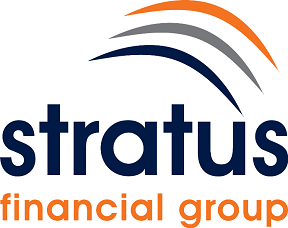According to the Prime Minister, the changes to Stage 3 Tax laws will provide a tax cut for everyone. Commencing 1 July, you’ll have money you’ve never had before and the question is: How will you use the extra cash?
Will you spend it on living expenses or something a bit more fun, pay down debt or will you contribute it to superannuation and your future retirement lifestyle?
There is no doubt any extra cash helps with the cost of living and it would be perfectly fine for you to use the extra cash from your tax cut to ease the burden of day-to-day expenses.
However, there are other options you might also like to consider. Afterall, this is money you’ve never had before and it could be used with greater purpose and potentially, it could result in your personal wealth enjoying a boost.
Generally speaking the lowest tax bracket has reduced from 19% tax to 16% and this will provide a tax saving on taxable income up to $45,000, while the 37% bracket will apply to a wider group of taxpayers to include those who earn $190,000 and were previously taxed at 45%.
Regardless of the tax change, the 2% Medicare Levy still applies.
For households the financial windfall can be significant.
For example, those who earn $190,000 (and are now eligible for the 37% tax rate) the tax saving will be $4,529 each year, and if your household comprises two such income earners, it will bring an additional $9,000 each year.
Similarly, for a household, comprising a main income earner on say $130,000 and another earner on $70,000 the extra cash available will be just over $4,800 each year.
(Here’s a link to the details on the Treasury website where you can use the calculator to work out how much the tax cut will contribute to your household.)
So what are your options for using your tax cut financial windfall?
Spend and enjoy!
Regardless of how much it is, any extra cash will relieve some cost of living expenses and if you decide to use it on non-essentials, then go right ahead. Enjoy!
Pay more to your home loan
When it comes to paying down debt, every extra dollar counts. Paying extra on your loan repayment or paying it to an offset loan can reduce your interest and help you pay off your loan sooner.
Contribute to super and boost your retirement lifestyle
Contributing cash you’ve never had before to your super fund or topping up your employer’s contributions to your annual superannuation cap of $27,500 will boost your retirement savings without you even noticing it.
Adding even more value to your personal wealth is the fact that any extra cash contributed to super will enjoy an additional tax saving. This is because money held in super is taxed at a flat 15% tax rate which is considerably less than the 37% tax band which affect the majority of income earners, and the 45% tax rate paid by higher income earners.
On a final note, if you are eligible for catch-up super contributions, you should consider ‘catching-up’ before 30 June this year.
This is because the catch-up contribution provision applies to a rolling five-year period and if you have an eligible catch-up contribution amount from the 2018 tax year, it will lapse and not be included in the rolling five-year calculation period from next 1 July. In addition, a higher super balance at the end of June this year may mean you become ineligible for any catch-up next financial year.
To learn more about how you can make more of your tax cut windfall, please contact Brett Cribb, Steve Nicholas or James Marshall on +61 (0)7 3007 2007, alternatively please email info@stratusfinancialgroup.com.au.
Stratus Financial Group helps professionals, executives, business owners, families and retirees manage their complex financial affairs and coordinate their professional advisers.
Stratus Financial Group and its advisers are Authorised Representatives of Fortnum Private Wealth Ltd ABN 54 139 889 535 AFSL 357306. This is general advice only and does not take into account your objectives, financial situation or needs, so you should consider whether the advice is relevant to your personal circumstances. You should also read the relevant Product Disclosure Statements (PDS) before making any financial decisions







